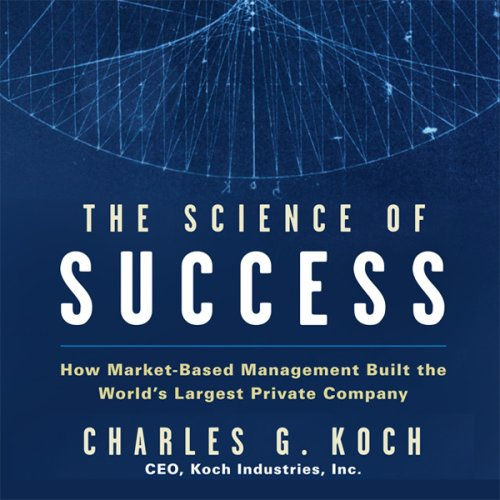Notes from "The Science of Success: How Market-Based Management Built..."
- tannerjanesky
- Jul 27, 2021
- 3 min read
These are my notes from "The Science of Success: How Market-Based Management Build the World's Largest Private Company" by Charles Koch.

Market Based Management (MBM) is the science of human action applied to an organization.
We believe it is necessary to drive creative destruction internally, otherwise creative destruction will drive us out of business.
Opportunity cost is the value of the most valuable alternative that must be forgone to undertake a given act.
There is no such thing as an even trade. For an exchange to occur, both parties must believe they will gain. Given the choice, people will satisfy their highest values first. This leads to the concept of "diminishing marginal utility." Since people satisfy their highest values first, each subsequent unit of a good will be put to a lower valued use.
A sunk cost is an unrecoverable past expenditure. Such costs should seldom be taken into account when determining what to do in the future.
Nations, organizations, or individuals have a "Comparative Advantage" for those productive activities in which they create the greatest value relative to the value of the activities forgone.
In general, an asset should be sold when the buyer will pay more than the seller's estimate of its remaining value.
An effective business vision begins and ends with value creation, which is the only reason any business should exist. In a true market economy, for a business to survive and prosper long term, it must develop and use its capabilities to create real, sustainable, superior value for its customers and for society.
Successful companies create value by providing products or services their customers value more highly than available alternatives. They do this while consuming fewer resources, leaving more resources available to satisfy other needs in society. Value creation involves making people's lives better.
In a true free market, with beneficial rules and property rights, the appropriate measure of the enterprise's value creation is long term profitability.
For a business to create value in society, its employees must create value for the business.
Societies are most prosperous when knowledge is plentiful, accessible, relevant, inexpensive, and growing. Such conditions are most fully brought about by trade.
The foundation of trade is mutual gain.
Knowledge fuels prosperity by signaling and guiding resources to higher valued uses.
The biggest problems in society have occurred in those areas thought best to be controlled in common: the atmosphere, bodies of water, air, streets, the body politic, and human virtue. They all reflect aspects of the tragedy of the commons and function much better when methods are devised to give them characteristics of private property.
"To the economically illiterate, if some company makes a million dollars in profit, this means that their products cost a million dollars more than they would have without profits. It never occurs to these people that these products would cost several million dollars more without the incentives to be efficient created by the prospect of profits." - Thomas Soul
At Koch Industries we do not reward roles. Rather we reward people for specific contributions and results.
Three requirements must be present for individuals to take action:
Dissatisfaction with the current state of affairs
A vision of a better state
Belief that they can reach the better state
Incentives: The first goal is to create incentives that harmonize the goals of the individual with those of the company. Second, compensation should be consistent with the notion that no two employees are alike, and thus their contributions can vary considerably. Third, no limit should be put on an employee's compensation, so the employees will not put a limit on the value they create. Finally, incentives should be structured in a way that effectively attracts, motivates, and retains principled entrepreneurs.
Salary is an advanced payment the employee is expected to create for the company.
Being able to estimate an employee's marginal contribution is an important element in determining compensation.



Comments